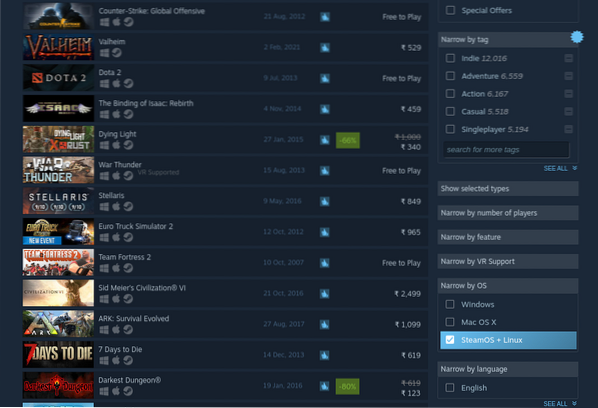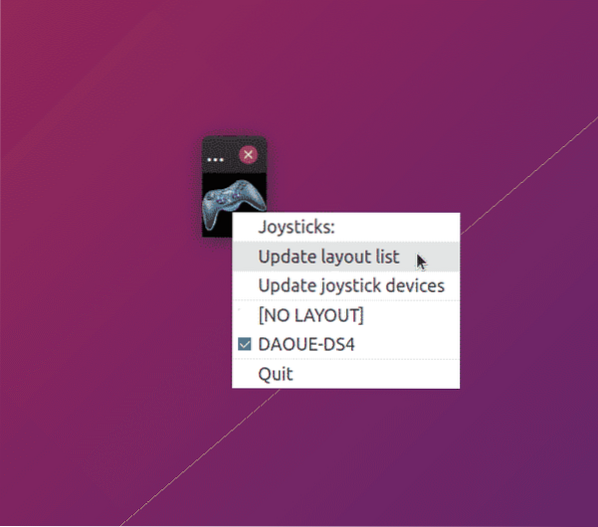Linux has made significant strides over the last couple of years when it comes to gaming. But has it reached the stage where it can be considered as a viable alternative to Windows? Well, the answer depends on you - what games you play and how you use your OS apart from gaming.
If you are looking for the OS with the most natively supported games, then Windows takes the cake - no argument!
However, it's more than likely you don't plan on playing “every” PC game out there! Maybe you have a few favorites! And Linux's gaming catalog covers almost all the popular titles, so you are extremely likely to find your favorite game compatible on Linux. Also, believe it or not, but some games actually perform better on Linux than Windows - provided you are running on the same hardware.
As such, it's clearly understandable why the PC gaming community is constantly engaged in a heated debate over Linux vs. Windows gaming - which is better. And so, for this read, we have decided to shed some light on the topic - giving you the pros and cons of both OSes in terms of gaming.
Linux Gaming vs. Windows Gaming
1. OS Price

So you are building a new gaming rig and want to know which OS to pick for Linux or Windows! Well, Linux is totally free, whereas Windows will cost you at least $140 (and that too for Windows 10 Home and not Pro)- money you could have otherwise spent on better gaming parts and peripherals.
Now I know what you are thinking - “what's this guy talking about - Windows is free!” And yeah, Windows is free - sort of! Microsoft offers a Windows 10 Media Creation Tool on their website that allows you to download and install an unactivated “trial” version of Windows 10 on your system. Even Linus from Linux Tech Tips uses unactivated Windows 10!
However, the biggest annoyance with running an unactivated copy of Windows 10 is the omnipresent “Activate Windows” watermark. Even while playing games, this watermark will sit at the bottom right corner of the screen - and frankly, it's super irritating. And not just that, but you also have limited (read: next to none) Windows customization features without updating.
Again, some of the more “resourceful” readers might point out that there's the KMS tool for Windows activation - but it's illegal and might even introduce viruses and vulnerabilities into your system!
With Linux, there are none of these problems! It's completely free, with no strings attached.
Winner: Linux. You can't beat free!
2. Game Availability

In terms of sheer game availability, Windows takes the cake. Not only does Windows natively support thousands of titles, but you can rest assured that all the latest AAA PC games will be supported on Windows 10.
That being said, Linux does support many of the popular titles. Around 76% of the top 1000 steam games have a gold rating (runs perfectly with minor modifications) in terms of compatibility, with 20% of the titles natively supported. And not just Steam, you can even play games from other sources like Origin, Uplay, Epic Games, and tons more by using Lutris.
Recommended Reading: The Ultimate Linux Gaming Guide - where and how to find games compatible on Linux.
Furthermore, game developers are slowly turning their attention to Linux, and it's not long till we see AAA titles simultaneously releasing for both Windows and Linux. Much of this is thanks to all the major Cloud Gaming Services being built on Linux.
As such, as we advance, Linux should play almost any PC game out there. But for now, Windows still holds the throne!
Winner: Windows - for now!
3. System Setup

With Windows, gaming is more or less a “plug and play” ordeal. You download/install the game you like, hit the play button, and that's it! This is because most of the PC games are “natively supported” on Windows.
As we discussed in the above section, many of the titles are also “natively supported” on Linux. And yes, you can play these games without any additional set-ups or tweaks!
However, a good chunk of the Linux-supported titles will require some extra labor from your end. This includes downloading some additional dependencies, installing a few ports, and the likes. If you're already a Linux user, you should be somewhat familiar with this stuff, as these are necessary to install some apps.
The good news is that there are tons of detailed guides and tutorials to help you configure your system to make the games run. So you aren't in it alone! The community is big, helpful, and just awesome! Also, there are dedicated Linux gaming distros that ship with all the latest drivers, packages, and dependencies necessary for gaming.
But all things considered, for the layman - a person who wants an OS to play their games and nothing more, Windows is the more convenient option as it's plug and play.
Winner: Windows - Albeit if you're already familiar with Linux, the extra set-up processes aren't too big of a deal.
4. Performance

This is a tricky one!
Generally speaking, in terms of performance, Linux takes the win over Windows by a long shot.
The current consensus in the Windows community is that you need at least 8 GB of RAM to enjoy a respectable computing experience. And let's not leave out the fact that if a Windows system is older than 3-4 years, it's going to be as slow as a slug.
On the flip side, Linux runs perfectly fine on old hardware. In fact, you can expect smooth performance with an Intel Dual-Core Pentium processor backed by just 2GB of RAM. That's how light and efficient Linux is when compared to Windows.
However, this performance doesn't very well translate itself to gaming. This is because if you are not running a game that's natively supported on Linux, then you are running it through a compatibility layer such as WINE or Proton. This eats up some of the system resources, which inadvertently affects game performance.
But that being said, it's not all too bad! For some niche gamers, Linux actually offers better performance compared to Windows.
A prime example of this is if you are a retro gamer - primarily playing 16bit titles. With WINE, you will get better compatibility and stability while playing these titles than playing it straight up on Windows.
Furthermore, thanks to Valve's ACO shader compiler, some modern titles actually perform better with noticeably higher FPS than Windows. And that's even when you run the games on compatibility layers like Proton. Now granted, this is only available on AMD graphics cards, but it's still something.
Read: The Ultimate Linux Gaming Guide - We talk about how to optimize your Linux PC for the best gaming performance.
Nvidia Graphics Drivers - because of their proprietary non-open-source nature - aren't as good on Linux as they could potentially be. But the good news is that Nvidia is working on it. They have been rolling out some patches and extensions here and there, which means, in the future, we could finally see optimized Nvidia drivers for Linux.
At the end of the day, if you are looking at performance, it depends on which games you plan to play. If you are running an AMD graphics card and mainly play games that are already natively supported on Linux, you will get better performance and higher FPS if you switch over from Windows.
Winner: You tell us - Here, performance is actually dependent on the games you play. But that being said, it's pretty clear that the future is Linux.
5. Privacy & Security

One might say that privacy & security aren't important to gamers, but “one” is wrong!
Just imagine if your system got infected with keylogger malware. Now, when you type in your username and password for Steam or Battle.net, a hacker will get your login credentials. Your gaming accounts, where you spend hundreds (some even thousands) of dollars, all got stolen, including your progress on the games.
Or let's say you're chatting with your friends on Discord. But somehow, because of malware or system vulnerability, a hacker can spy in on your conversation. What if they hear something important?
And let's not leave out the most obvious issues like getting your computer rendered useless by things like ransomware. Even a simple virus can drastically increase system resource consumption such that your games won't even open.
All of these things can happen, which is why no computer user should ever take privacy and security lightly - even gamers.
Now on Windows, the most simple way to stop these things from happening is by installing an Anti-Virus. But as the anti-virus runs in the background, it eats up a part of your system resources, which will limit your optimal gaming experience.
On the flip side, Linux doesn't need antivirus! First of all, there aren't as many viruses developed for Linux, so your chances of running into one are next to nil. Furthermore, Linux is built in such a way that viruses, malware, or any foreign and malicious scripts, for that matter, won't run without your explicit authentication.
Not just that, but the Linux kernel has a built-in firewall called iptables that can be easily programmed through apps like UFW (Uncomplicated FireWall), which will prevent all incoming traffic to your system, thereby keeping you safe from any hackers.
This makes Linux the safest operating system out there, period!
Winner: Linux
Linux Gaming vs. Windows Gaming: Who Wins?
So that pretty much covers the main differences between Linux gaming vs. Windows gaming. As you can clearly see, Linux is the more cost-effective (it's free after all) and secure operating system, but it's in its budding years when it comes to gaming.
The potential is clearly present, and Linux has a bright future ahead when it comes to gaming. But right here, right now, objectively, Windows is still the better operating system for gaming - the keyword being “objectively.”
If you don't know a user and they ask what's the best operating system for gaming, you would point them towards Windows because of the availability of the latest games and the overall hassle-free experience.
However, let's say the user is a niche gamer that only plays titles like CS: GO or Dota 2, then Linux is the OS of choice. And it would help if you didn't think Linux gaming means playing less graphically demanding games. Graphics-intensive titles like GTA 5, Witcher 3, Shadow of Tomb Raider, Shadow of Mordor, and many run perfectly smooth on the OS.
The Linux gaming space isn't as bleak as people make it out to be. The most important part of gaming on Linux is that you should be willing to do some research.
Go to ProtonDB and find out which games properly run on Linux. They will also tell you the necessary tweaks you need to make to your system, so just read and apply. Also, if you play games that are compatible with ACO, you can expect better performance on Linux than on Windows.
So which OS do you play games on - Linux or Windows? Let us know in the comments below!
 Phenquestions
Phenquestions



